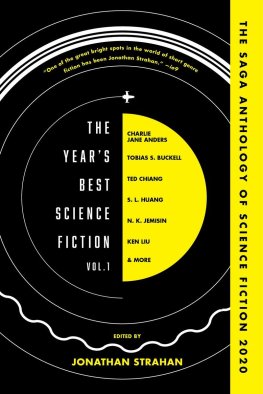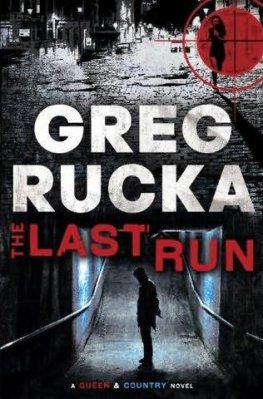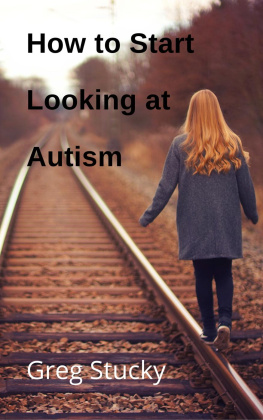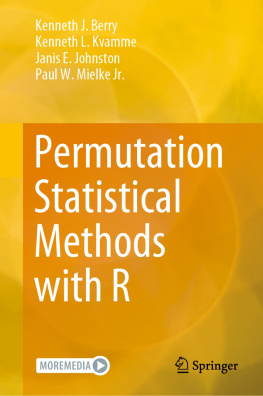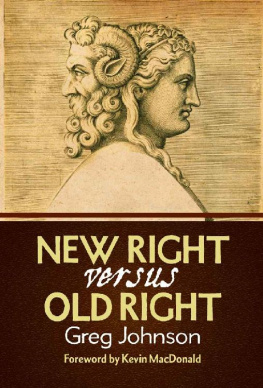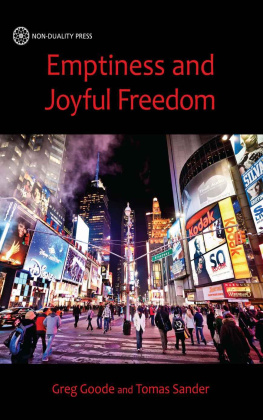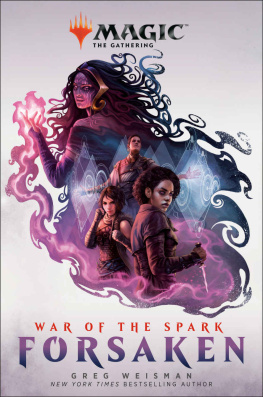Greg Igan - Permutation City
Here you can read online Greg Igan - Permutation City full text of the book (entire story) in english for free. Download pdf and epub, get meaning, cover and reviews about this ebook. genre: Science fiction. Description of the work, (preface) as well as reviews are available. Best literature library LitArk.com created for fans of good reading and offers a wide selection of genres:
Romance novel
Science fiction
Adventure
Detective
Science
History
Home and family
Prose
Art
Politics
Computer
Non-fiction
Religion
Business
Children
Humor
Choose a favorite category and find really read worthwhile books. Enjoy immersion in the world of imagination, feel the emotions of the characters or learn something new for yourself, make an fascinating discovery.

- Book:Permutation City
- Author:
- Genre:
- Rating:4 / 5
- Favourites:Add to favourites
- Your mark:
- 80
- 1
- 2
- 3
- 4
- 5
Permutation City: summary, description and annotation
We offer to read an annotation, description, summary or preface (depends on what the author of the book "Permutation City" wrote himself). If you haven't found the necessary information about the book — write in the comments, we will try to find it.
Permutation City — read online for free the complete book (whole text) full work
Below is the text of the book, divided by pages. System saving the place of the last page read, allows you to conveniently read the book "Permutation City" online for free, without having to search again every time where you left off. Put a bookmark, and you can go to the page where you finished reading at any time.
Font size:
Interval:
Bookmark:
Greg Egan
Permutation City
STREET SCENE
There were cyclists and pedestrians on the street -- all recorded. They were solid rather than ghostly, but it was an eerie kind of solidity; unstoppable, unswayable, they were like infinitely strong, infinitely disinterested robots.
When Paul reached the corner, the visual illusion of the city continued off into the distance; but when he tried to step forward, the concrete pavement under his feet started sliding backward, like a treadmill.
He was on the edge of his universe.
ACKNOWLEDGMENTS
Parts of this novel are adapted from a story called "Dust," which was first published in Isaac Asimov's Science Fiction Magazine, July 1992.
Thanks to Deborah Beale, Charon Wood, Peter Robinson, David Pringle, Lee Montgomerie, Gardner Dozois and Sheila Williams.
Into a mute crypt, I
Can't pity our time
Turn amity poetic
Ciao, tiny trumpet!
Manic piety tutor
Tame purity tonic
Up, meiotic tyrant!
I taint my top cure
To it, my true panic
Put at my nice riot
To trace impunity
I tempt an outcry, I
Pin my taut erotic
Art to epic mutiny
Can't you permit it
To cite my apt ruin?
My true icon: tap it
Copy time, turn it; a
Rite to cut my pain
Atomic putty? Rien!
Found in the memory of a discarded notepad in the Common Room of the Psychiatric Ward, Blacktown Hospital, June 6, 2045.
PROLOGUE
(Rip, tie, cut toy man)
JUNE 2045
Paul Durham opened his eyes, blinking at the room's unexpected brightness, then lazily reached out to place one hand in a patch of sunlight at the edge of the bed. Dust motes drifted across the shaft of light which slanted down from a gap between the curtains, each speck appearing for all the world to be conjured into, and out of, existence -- evoking a childhood memory of the last time he'd found this illusion so compelling, so hypnotic: He stood in the kitchen doorway, afternoon light slicing the room; dust, flour and steam swirling in the plane of bright air. For one sleep-addled moment, still trying to wake, to collect himself, to order his life, it seemed to make as much sense to place these two fragments side by side -- watching sunlit dust motes, forty years apart -- as it did to follow the ordinary flow of time from one instant to the next. Then he woke a little more, and the confusion passed.
Paul felt utterly refreshed -- and utterly disinclined to give up his present state of comfort. He couldn't think why he'd slept so late, but he didn't much care. He spread his fingers on the sun-warmed sheet, and thought about drifting back to sleep.
He closed his eyes and let his mind grow blank -- and then caught himself, suddenly uneasy, without knowing why. He'd done something foolish, something insane, something he was going to regret, badly . . . but the details remained elusive, and he began to suspect that it was nothing more than the lingering mood of a dream. He tried to recall exactly what he'd dreamed, without much hope; unless he was catapulted awake by a nightmare, his dreams were usually evanescent. And yet --
He leaped out of bed and crouched down on the carpet, fists to his eyes, face against his knees, lips moving soundlessly. The shock of realization was a palpable thing: a red lesion behind his eyes, pulsing with blood . . . like the aftermath of a hammer blow to the thumb -- and tinged with the very same mixture of surprise, anger, humiliation and idiot bewilderment. Another childhood memory: He held a nail to the wood, yes -- but only to camouflage his true intentions. He'd seen his father injure himself this way -- but he knew that he needed first-hand experience to understand the mystery of pain. And he was sure that it would be worth it, right up to the moment when he swung the hammer down --
He rocked back and forth, on the verge of laughter, trying to keep his mind blank, waiting for the panic to subside. And eventually, it did -- to be replaced by one simple, perfectly coherent thought: I don't want to be here.
What he'd done to himself was insane -- and it had to be undone, as swiftly and painlessly as possible. How could he have ever imagined reaching any other conclusion?
Then he began to remember the details of his preparations. He'd anticipated feeling this way. He'd planned for it. However bad he felt, it was all part of the expected progression of responses. Panic. Regret. Analysis. Acceptance.
Two out of four; so far, so good.
Paul uncovered his eyes, and looked around the room. Away from a few dazzling patches of direct sunshine, everything glowed softly in the diffuse light: the matte white brick walls, the imitation (imitation) mahogany furniture; even the posters -- Bosch, Dali, Ernst, and Giger -- looked harmless, domesticated. Wherever he turned his gaze (if nowhere else), the simulation was utterly convincing; the spotlight of his attention made it so. Hypothetical light rays were being traced backward from individual rod and cone cells on his simulated retinas, and projected out into the virtual environment to determine exactly what needed to be computed: a lot of detail near the center of his vision, much less toward the periphery. Objects out of sight didn't 'vanish' entirely, if they influenced the ambient light, but Paul knew that the calculations would rarely be pursued beyond the crudest first-order approximations: Bosch's Garden of Earthly Delights reduced to an average reflectance value, a single gray rectangle -- because once his back was turned, any more detail would have been wasted. Everything in the room was as finely resolved, at any given moment, as it needed to be to fool him -- no more, no less.
He had been aware of the technique for decades. It was something else to experience it. He resisted the urge to wheel around suddenly, in a futile attempt to catch the process out -- but for a moment it was almost unbearable, just knowing what was happening at the edge of his vision. The fact that his view of the room remained flawless only made it worse, an irrefutable paranoid fixation: No matter how fast you turn your head, you'll never even catch a glimpse of what's going on all around you . . .
He closed his eyes again for a few seconds. When he opened them, the feeling was already less oppressive. No doubt it would pass; it seemed too bizarre a state of mind to be sustained for long. Certainly, none of the other Copies had reported anything similar . . . but then, none of them had volunteered much useful data at all. They'd just ranted abuse, whined about their plight, and then terminated themselves -- all within fifteen (subjective) minutes of gaining consciousness.
And this one? How was he different from Copy number four? Three years older. More stubborn? More determined? More desperate for success? He'd believed so. If he hadn't felt more committed than ever -- if he hadn't been convinced that he was, finally, prepared to see the whole thing through -- he would never have gone ahead with the scan.
But now that he was "no longer" the flesh-and-blood Paul Durham -- "no longer" the one who'd sit outside and watch the whole experiment from a safe distance -- all of that determination seemed to have evaporated.
Suddenly he wondered: What makes me so sure that I'm not still flesh and blood? He laughed weakly, hardly daring to take the possibility seriously. His most recent memories seemed to be of lying on a trolley in the Landau Clinic, while technicians prepared him for the scan -- on the face of it, a bad sign -- but he'd been overwrought, and he'd spent so long psyching himself up for "this," that perhaps he'd forgotten coming home, still hazy from the anesthetic, crashing into bed, dreaming . . .
Next pageFont size:
Interval:
Bookmark:
Similar books «Permutation City»
Look at similar books to Permutation City. We have selected literature similar in name and meaning in the hope of providing readers with more options to find new, interesting, not yet read works.
Discussion, reviews of the book Permutation City and just readers' own opinions. Leave your comments, write what you think about the work, its meaning or the main characters. Specify what exactly you liked and what you didn't like, and why you think so.

